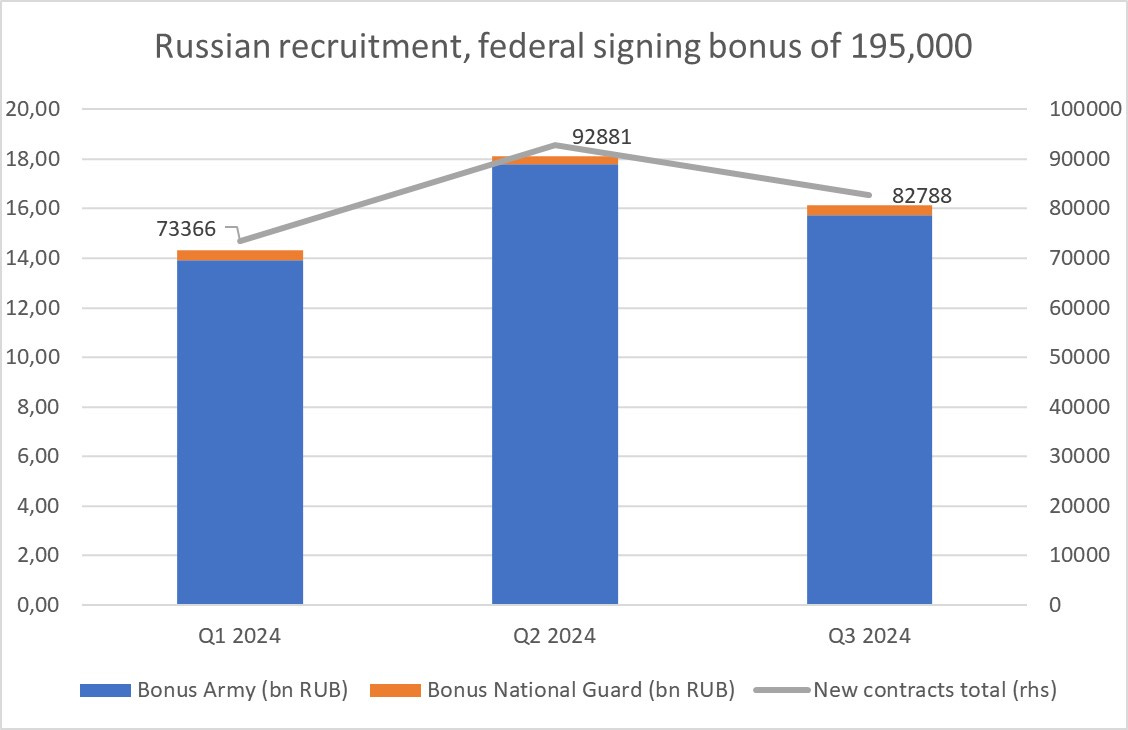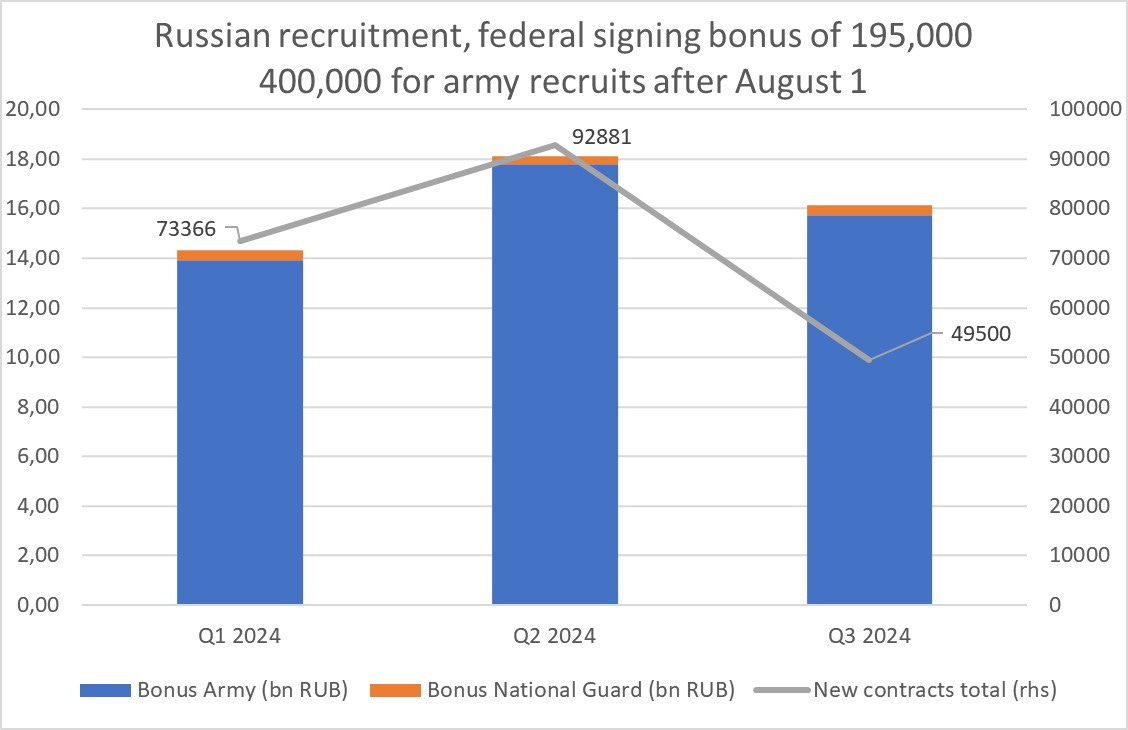Russian recruitment slows, estimated 700 new contracts per day
The slowdown is real, but the increase of the federal signing bonus makes a precise estimate very difficult.
Russia just released a new batch of budget data for the Q3 of 2024 (July-Sep). The data offers some insight into the speed of Russia’s recruitment campaign. The idea for the methodology originally came from iStories and is explained in a previous post on this topic. Russian budget records include the total amount of federal signing bonuses paid to new recruits for both the Ministry of Defense and the National Guard. Dividing the total by the size of the bonus should provide an estimate of the number of new recruits. Most importantly, for the past two quarters, the budget data have been roughly in line with official statements and foreign intelligence reports (see also Anatoly Kurmanaev’s NYT piece on efforts to estimate losses and recruitment).
The assessment of the data from Q3 is more difficult than in previous quarters, because Russia increased the signing bonus for Minoborony recruits from 195,000 to 400,000 rubles starting from August 1 (the bonuses for National Guard recruits were only increased later on and did not affect budget spending in Q3). This means that the bonus was 195,000 during the first month of the quarter and 400,000 in the other two months. To some extent, the estimates for previous quarters also came with caveats (because a payout from the budget may not happen in the same quarter in which the contract is signed). There is a time lag between the signing of the contract and the disbursement to be taken into account, and it is unclear how long it is. However, it is possible to calculate different possible scenarios and make estimates.
Despite the increase of the signing bonus from 195,000 to 400,000 rubles in August, the total amount spent on signing bonuses decreased by 12% in the third quarter, from 18.1 billion in Q2 to 16.1 billion in Q3.
The maximum scenario: If we assume that the increase of the bonus did not affect the payments in Q3 at all, because the lag of payouts is 2 months or more, the maximum number of contracts this amount pays for is 82,788, or 900 per day.
For all of the following scenarios, my assumption is that the same number of recruits were added in each month of Q3. This is debatable: Maybe the higher bonus means that more recruits were added after August 1 (this is likely and would lead to lower estimates). Maybe the increasing difficulties in finding more recruits meant that more recruits were added ealier in the quarter.
The minimum scenario: If we assume that all Minoborony payouts immediately rose from 195,000 to 400,000 on August 1st, on the first day Putin’s decree came into effect , then we can calculate the average signing bonus in Q3 as: 195,000*1/3 plus 400,000*2/3 = 332,000 for the Minoborony recruits, and 195,000 for the National Guard recruits. The result would be 49,500 new recruits in Q3 or 538 per day.
The middle scenario: If we assume that there is a one-month lag between the signing of a new contract and the time the payout from the budget, then all Minoborony payouts rose from 195,000 to 400,000 on September 1st, one month after Putin’s decree came into effect. Then we can calculate the average signing bonus as: 195,000*2/3 plus 400,000*1/3 = 263,000 for the Minoborony recruits, and 195,000 for the National Guard recruits. The result would be 61,931 new recruits in Q3 or 673 per day.
Depending on your assumption of the time it took for the increase of the signing bonus to affect the budget, you can decide which scenario is the most credible to you. My best guess would be somewhere between the middle scenario and the maximum scenario, or around 700 new recruits per day. This would not be a drastic slowdown and there could be seasonality involved as well (slower recruitment in the summer months). But overall, the estimate is in line with the increasing difficulty in recruiting, which has already led Russia to increase bonuses (regional and federal) several times in 2024 and even offer debt relief to new recruits.






